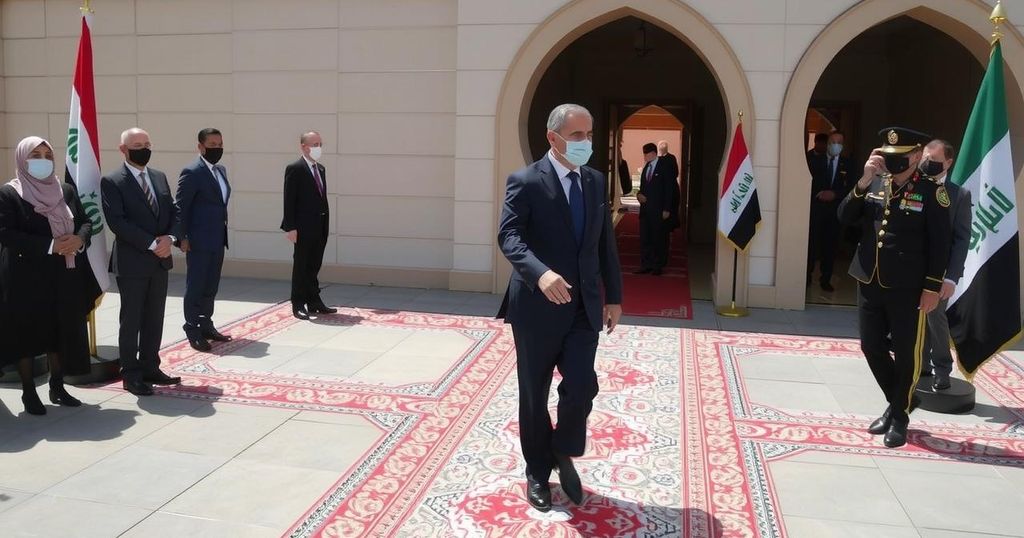U.S. Secretary of State Antony Blinken made an unannounced visit to Iraq to discuss regional stability and the implications of the Syrian regime’s collapse. His meetings with the Iraqi Prime Minister focused on preventing the resurgence of terrorism and promoting an inclusive transition in Syria. Blinken emphasized the importance of U.S.-Iraq collaboration amidst the changing dynamics in the Middle East.
United States Secretary of State Antony Blinken made an unannounced visit to Iraq on Friday to engage with Prime Minister Mohammed Shia al-Sudani. This visit comes in the context of the international community addressing the aftermath of the Syrian government’s recent collapse. The Secretary’s discussions in Baghdad lasted over an hour, continuing a series of diplomatic efforts across Turkey and Jordan aimed at developing a coordinated response to the rapid changes in Syria following the fall of Bashar al-Assad’s regime.
During this engagement, Blinken emphasized the need to prevent Syria from being utilized as a haven for terrorist activities, specifically cautioning against the potential resurgence of groups such as ISIS. The Secretary’s focus extends to valuable regional partnerships, particularly considering the implications of Iranian-backed militias in Iraq who may exploit Syria’s instability.
In light of these developments, Blinken aimed to affirm the United States’ commitment to the strategic partnership with Iraq, discussing topics related to security and the necessity for an inclusive Syrian transitional government that represents all communities within the country. Following his discussions in Baghdad, Blinken is set to continue his diplomatic efforts in Aqaba, Jordan, where he will participate in a ministerial meeting centered on reconstructing Syrian state institutions while upholding the nation’s unity and stability.
Acknowledging the delicate situation in the region, Blinken remarked on the shared commitment among regional leaders to a unified approach to aid the Syrian populace during their transition away from authoritarian rule. This visit underscores the U.S.’s significant role in fostering regional cooperation to promote stability and peace.
In conclusion, Secretary Blinken’s visit to Iraq illustrates the urgency and complexity of the international response to the Syrian crisis, highlighting the vital collaborations required among regional partners to ensure stability and counter any threats that arise from the collapse of the Assad regime and the actions of extremist groups.
The backdrop to Secretary Blinken’s visit is the recent collapse of the Syrian government under Bashar al-Assad following a significant uprising from rebel forces. This seismic shift has raised alarms for many countries in the region, particularly the United States and its allies, regarding the potential for increased terrorism and instability. The complicated state of Iraq, which has dealt with Iranian influence and past terrorist threats, adds another layer of urgency as international leaders seek to manage the fallout from Syria’s turmoil. Coordinated diplomatic efforts are therefore deemed essential to navigate the intricacies of this regional crisis.
Secretary Blinken’s engagement with Prime Minister al-Sudani represents a pivotal moment for U.S. foreign policy in the region, underscoring the importance of solidarity among nations dealing with the repercussions of the Syrian regime’s fall. The efforts to promote stability, discourage extremism, and support a peaceful transition in Syria reflect a strategic approach to ensure that the region does not face a resurgence of terror threats. As the Secretary moves to Aqaba for further discussions, it is clear that a united front among regional leaders is vital for addressing these pressing challenges.
Original Source: www.cnn.com






